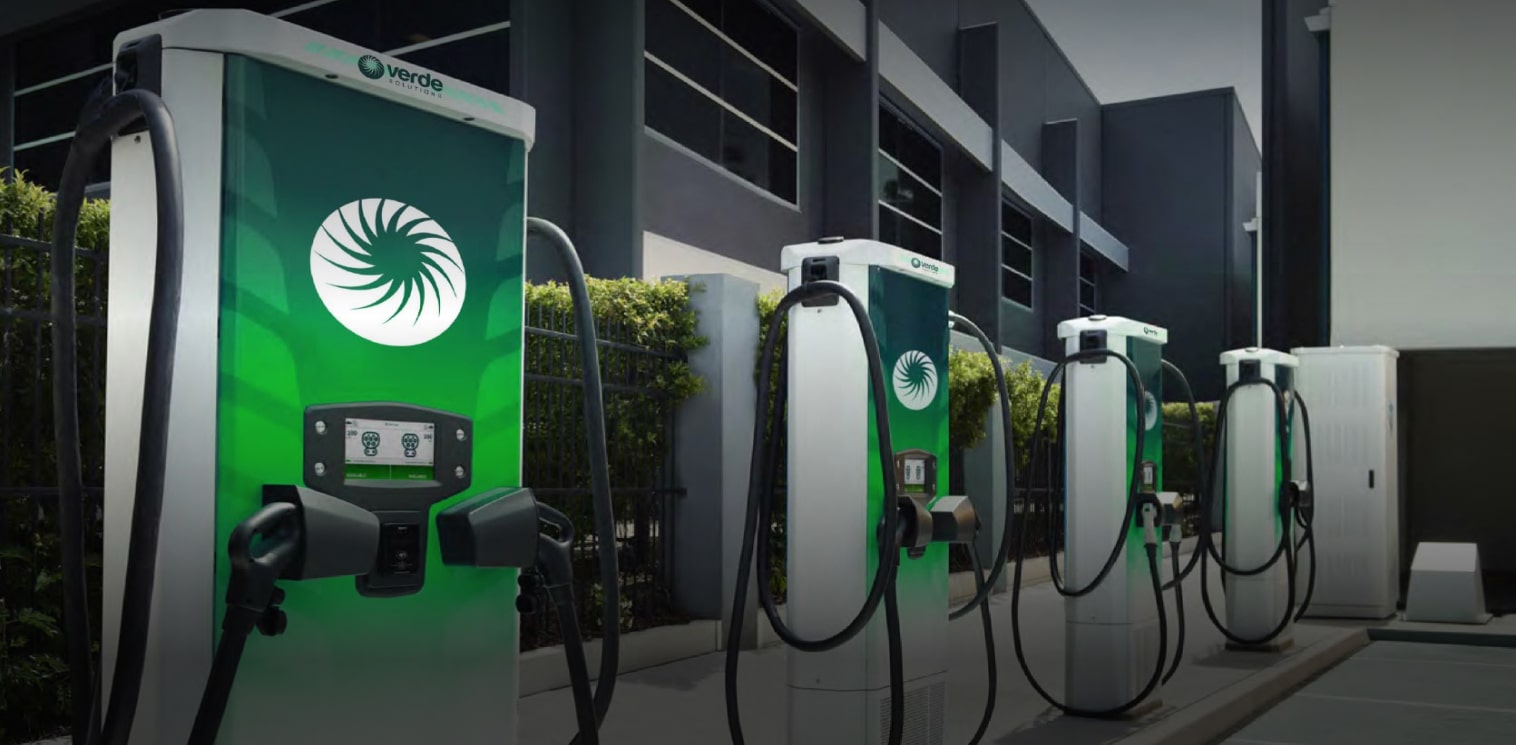
Article At A Glance
- Charging speeds and compatibility vary depending on the charger type and EV model.
- Solar-powered charging captures sunlight through panels and converts it into electricity for the EV battery.
- Solar energy for charging has advantages, including cost savings, environmental benefits, energy independence, and resilience during power outages.
- Governments offer incentives for adopting electric vehicles and installing solar-powered charging stations.
Electric vehicles (EVs) are transforming the way we think about transportation. As more people switch to EVs, reducing fossil fuel use and carbon emissions, the demand for efficient EV battery chargers has grown. But have you ever considered pairing your EV with solar-powered charging? Combining solar panels with your electric vehicle allows you to power up sustainably while reducing electricity bills.
In this blog, we’ll discuss how solar-powered charging works, its benefits, and how it can help businesses and homeowners save money. We’ll also cover key incentives that make going green more affordable.
Understanding EV Battery Chargers: A Key Component in Green Transportation
EV battery chargers are essential for keeping electric vehicles running. They convert grid power into the energy your EV needs, measured in kilowatt-hours (kWh), to keep your vehicle moving. The type of charger and how you charge your EV can directly affect your costs, electricity usage, and carbon footprint.
Exploring Different Types of EV Battery Chargers
Not all chargers are created equal. Here are the main types of EV battery chargers:
- Level 1 Chargers: These standard outlets can be found at home and deliver about 2-5 miles of range per hour of charging.
- Level 2 Chargers: These are faster than Level 1 chargers, providing 10-20 miles per hour of charging, and are often installed by a professional solar installer.
- DC Fast Chargers: Found at public charging stations, these chargers can power an EV quickly—providing up to 100 miles of range in about 30 minutes.
Charging Speeds and Compatibility for Electric Vehicles
Charging speeds vary based on the type of charger and the EV itself. It’s important to ensure your charger is compatible with your EV and fits your typical driving range. If you typically drive about 40 miles a day, a Level 2 charger could be ideal for home charging. On the other hand, if your journeys are longer, you might benefit more from using public charging stations and fast chargers.
Adopting Solar-Powered Charging Solutions
Solar energy is a renewable resource that’s not only eco-friendly but can significantly reduce your electricity bills. By using solar power to charge your EV, you’re tapping into clean electricity while reducing your reliance on fossil fuels. Combining solar panels with EV charging stations is an ideal solution for lowering energy costs and boosting energy independence.
How Solar-Powered Chargers Work for EVs
Solar-powered charging stations capture sunlight through rooftop solar panels or ground-mounted systems. This solar energy is converted into electricity, which flows into the EV battery. In some setups, any excess power generated by the solar panels can be stored in a battery storage system, providing additional energy for later use or sending it back to the grid.
Advantages of Harnessing Solar Energy for Charging
Solar-powered charging comes with many benefits:
- Cost Savings: Solar electricity is cheaper than grid electricity. By charging your EV using solar energy, you reduce your electricity bills and your EV charging costs.
- Environmental Benefits: Solar power reduces one’s carbon footprint by using a clean energy source, reducing greenhouse gas emissions.
- Energy Independence: With solar panels, you rely less on utility providers and fluctuating electric rates.
- Resilience During Power Outages: Solar systems with battery storage can provide energy even when the grid goes down, ensuring you’re never stuck with a dead battery.
Incentives for Electric Vehicles
Going green helps the environment and can offer financial rewards. Governments are providing incentives to make the transition to electric vehicles and solar energy easier for businesses and homeowners.
Government Incentives for Adopting Electric Vehicles
In many regions, EV owners can take advantage of government programs that offer rebates or grants for installing solar-powered charging stations and purchasing EVs. These incentives help offset the initial investment costs and make the transition to clean energy more accessible.
Tax Credits and Rebates for Businesses Going Green
Tax credits for solar installations and EV charging stations can lead to substantial savings for businesses. Federal tax credits are available for installing solar panels, covering up to 30% of the average cost. Additionally, utility providers may offer rebates for reducing electricity usage through renewable energy systems.
Additional Read: Inflation Reduction Act Super Charges Solar Energy Tax Incentives
Reducing Electric Bills with Solar Charging
One of the most appealing aspects of solar-powered EV charging is the potential for long-term savings on electricity bills. As utility rates continue rising, relying on solar energy becomes more cost-effective.
Cost Comparison: Traditional vs. Solar-Powered Charging
Charging your EV using traditional grid power can lead to higher energy bills, especially in areas with high electric rates. In contrast, using solar electricity allows you to take advantage of a free renewable resource after the initial investment in solar panels and charger installation.
For instance, an average driver covering 1,000 miles each month might notice a substantial difference in expenses:
- Traditional Charging: Around 10-15 cents per kWh of electricity.
- Solar-Powered Charging: Once the solar panels are installed, the energy produced is free, leading to lower monthly electricity costs.
Case Studies: Success Stories of Reduced Electric Bills
Businesses that have switched to solar-powered EV charging have seen impressive reductions in their electricity bills. A local business in Illinois, for instance, installed rooftop solar panels and integrated solar charging stations for its fleet of electric vehicles. Within a year, it reported a 40% reduction in its energy costs, thanks to clean electricity generated by solar power.
These success stories highlight how solar installations can significantly impact environmental impact and energy savings.
Unlock Cost Savings and Sustainability with Solar-Powered EV Charging and Verde Solutions
Solar-powered EV charging offers a sustainable, cost-effective solution for businesses and homeowners alike. Integrating solar panels with EV chargers can significantly decrease reliance on grid power, reduce electricity costs, and minimize your carbon footprint. With government incentives and rebates available, the initial investment in solar power becomes more manageable, leading to long-term savings and energy independence.
If you’re ready to switch to solar-powered EV charging, Verde Solutions is here to help. Our expert solar installers can guide you through every step of the process, from charger installation to ongoing maintenance. Start saving on energy costs while contributing to a cleaner future. Call us today at 800-541-1137 to learn more.

